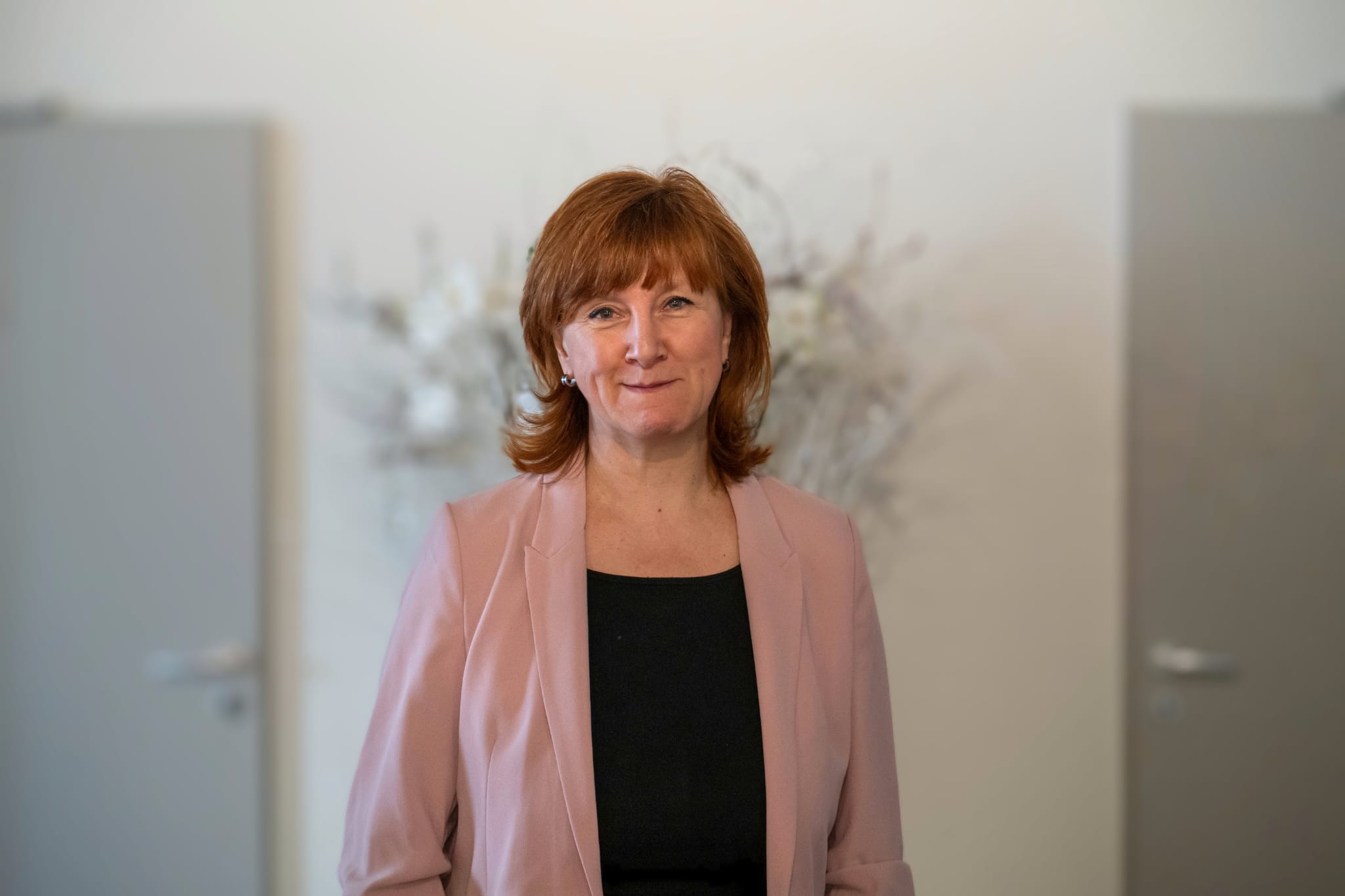Interviews
We are excited to initiate a series of interviews to feature the CLAIMS partners, offering each of you the opportunity to showcase your perspective, motivations and contributions to the CLAIMS project.

Prof. Dana Horakova, MD, PhD
Short bio:
Professor Dana Horakova, MD, PhD, graduated from the Faculty of Medicine of Charles University in 1992. Since 1999 she has been working at the MS Centre of the 1st Medical Faculty of Charles University in Prague. In 2006 she completed a six-month internship at BNAC in Buffalo, USA. In 2010 she received her PhD degree with the thesis “Predictive markers for clinical development in MS patients”.
Dr. Horakova is a member of the immunology committee of the Czech Neurological Society and serves as an expert guarantor of the Czech national ReMuS registry. She was the Chair of the MSBase Scientific Leadership Group from 2014 to 2020 and is currently a member of the SLG and a member of the MSBase Board of Directors.
Her key research interests include – markers of disease activity and response to treatment (clinical and MRI, especially implementation and validation of quantitative volumetric MRI techniques in routine clinical practice) and the use of databases and registries in MS.
- Introduce your current position and affiliation; and can you provide an overview of your organization’s role within the CLAIMS project
I am a neurologist and I work in the largest MS centre in the Czech Republic. We provide comprehensive care to almost 4,000 patients. - What motivated you to participate in the CLAIMS project and what specific expertise or contributions do you bring to the consortium?
I have a long-standing interest in the implementation of quantitative MRI in clinical practice and the use of data in registries. In my centre we have a uniform system of examining patients on the same MR machine in a uniform protocol and we enter all data in a structured way into the database system. We plan to provide these MR scans together with clinical data to the CLAIMS project. At the same time, we would like to start collecting Patient Reported Outcomes. Here I believe that Icompanion application can help in this data collection. - What impact do you hope the CLAIMS project will have on the field of Multiple Sclerosis research and patient care?
I believe that processing MR data with advanced software techniques in conjunction with clinical data and the use of AI technologies can help in defining new MS phenotypes and in physician decision making. - Lastly, is there any additional message or insight you would like to share with our audience regarding your organization’s involvement in the CLAIMS project or your overall commitment to advancing Multiple Sclerosis research and patient care?
MS is a very complex, serious neurological disease. To properly assess disease activity, we need comprehensive data that must be reliable, and the clinician must receive it in real time, optimally at a single point of contact.
Annemie Ribbens, PhD, MSc

Annemie Ribbens, PhD, MSc
Short bio:
Annemie Ribbens, PhD, MSc. is Vice President Science, Evidence and Clinical Trials at icometrix. Since early on, she found her passion in leveraging mathematical models to better understand neurological disorders.
She holds a master degree in Applied Mathematics and a PhD in electrical engingeering from the University of Leuven, whereafter she continued her work as a postdoctoral fellow in collaboration with University College London.
In 2014, Dr. Ribbens joined icometrix, an innovative company that aims to bring AI solutions for neurology towards clinical routine. She started here as a senior researcher where she co-developed the algorithm that forms the base of the current CE/FDA cleared icobrain portfolio for brain MRI quantification in clinical routine. Afterwards, she became research manager and subsequently VP Clinical Trials at icometrix.
In her current role as VP Science, Evidence and Clinical trials, she manages all scientific research operations at the company. As such, she focuses on generating evidence for the clinical, technical and health economic benefits of the icometrix’ portfolio. Additionally, she leverages the icometrix portfolio for phase I-IV clinical trials and strategic partnerships with top pharmaceutical companies to improve the safety and efficacy evaluation of novel drugs.
Together with her multi-disciplinary team of engineers, biomedical scientists and clinicians, she aims to drive the field of neurology forward in adopting AI solutions to improve patient care management and patient outcomes.
- Introduce your current position and affiliation; and can you provide an overview of your organization’s role within the CLAIMS project
My position is Vice President Science, Evidence and Clinical Trials at icometrix. icometrix is the co-project-lead of CLAIMS, in collaboration with Charite. Apart from project coordination, icometrix is leading the development of the data-driven precision medicine platform. Additionally, icometrix contributes to the clinical evaluation studies in terms of study design, monitoring and analysis. - What motivated you to participate in the CLAIMS project and what specific expertise or contributions do you bring to the consortium?
At icometrix, we strongly believe that patient outcomes can be improved when clinicians receive accurate and objective information to make treatment decisions. Digital AI solutions, such as AI-based MRI quantification, have proven to provide more sensitive and detailed assessments of disease progression.
The icometrix’ vision strongly aligns with the vision of the CLAIMS initiative, where such digital solutions will be further extended into a complete data-driven precision medicine platform and evaluated in clinical routine of top institutes to assess the potential impact on patient care pathways.
icometrix has unique expertise as they have built 9 regulatory cleared AI solutions and have rolled out these solutions in both clinical practice as well as in clinical trials with top pharmaceutical companies. Additionally, icometrix is working towards a full adoption in the healthcare system of such solutions, which also includes a focus on reimbursement. In this context, a CPT code for quantitative image analysis was issued last year by the American Medical Association (AMA) after icometrix’ successful application, which is active and reimbursed in the US as of January 1st, 2024. - What impact do you hope the CLAIMS project will have on the field of Multiple Sclerosis research and patient care?
I believe that CLAIMS can be a key driver in shifting the paradigm towards personalized treatment optimization in Multiple Sclerosis by using digital solutions.
For me this is reflected in three major aspects:
• Full integration of digital solutions and data-driven AI models in clinical routine
• Changing care pathways and clinical decision making towards a more data-driven, personalized approach
• Generating insights for the next generation of treatments by improving the understanding of the differences in disease courses and treatment response. - Lastly, is there any additional message or insight you would like to share with our audience regarding your organization’s involvement in the CLAIMS project or your overall commitment to advancing Multiple Sclerosis research and patient care?
I am extremely proud to collaborate with all the outstanding stakeholders in this consortium, including world-renowned clinical experts from leading centers across Europe, top pharmaceutical companies, and strong technical specialists. Additionally, the voice of the patient will be central to this program’s focus and will be amplified through our partnership with the European Charcot Foundation. It is only through the collective efforts of all stakeholders that we can truly transform the healthcare landscape and change outcomes for those living with Multiple Sclerosis.









